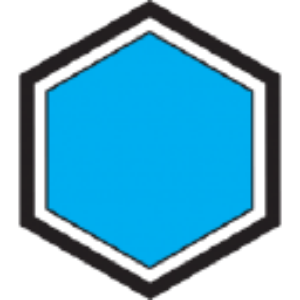GlycoMimetics Announces Independent Presentations on Uproleselan at American Society of Hematology Annual Meeting including New Clinical Data in Treated Secondary Acute Myeloid Leukemia
- Promising results in the Phase 1b/2 trial for uproleselan
- Broad potential of uproleselan for different age groups and disease settings
- Progressing with a screening trial for pediatric AML patients
- None.
Insights
Analyzing...
“We are excited by the results from this IIT demonstrating the safety and preliminary efficacy of uproleselan in ts-AML patients, a group with few treatment options and persistent high unmet need,” said Edwin Rock, M.D., Ph.D., Chief Medical Officer of GlycoMimetics. “These findings underscore the broad potential of uproleselan, if successfully developed in combination with existing therapies, to benefit people with heterogeneous forms of AML. We are committed to exploring this potential across different age groups and disease settings through studies conducted by partners and independent investigators, and we thank them for their continued collaboration.”
Uproleselan Added to Cladribine Plus Low Dose Cytarabine (LDAC) in Patients with Treated Secondary Acute Myeloid Leukemia (TS-AML)
Presenter: Emmanuel Almanza Huante, M.D., Department of Leukemia
The University of Texas MD Anderson Cancer Center,
Session: 616. Acute Myeloid Leukemias: Investigational Therapies, Excluding Transplantation and Cellular Immunotherapies: Poster II
Time and Location: Sunday, December 10, 2023: 6:00 PM-8:00 PM PST, Halls G-H,
Poster Number: 2922
- This Phase 1b/2 clinical trial evaluated safety, tolerability, and preliminary efficacy of uproleselan added to cladribine and LDAC in patients with ts-AML.
- This rare, high-risk study population is defined by prior chemotherapy treatment of a previous hematologic disorder, such as myelodysplastic syndrome. Median survival of ts-AML patients is less than 5 months.
-
A majority of the 20 patients enrolled in this IIT were male (n=14), and median age of enrolled patients was 72 years. All patients had unfavorable cytogenetics and had previously received treatment with a hypomethylating agent. Also, 11 patients (
55% ) had received prior treatment with venetoclax, and five (25% ) had undergone stem cell transplantation. -
At a median follow-up of 8.1 months, results from 18 evaluable patients showed that cladribine and LDAC combined with uproleselan generated few treatment-related adverse events. The combination produced an overall response in 7 (
39% ) patients and reduced bone marrow blasts (morphologic leukemia-free state) in 13 (72% ) patients. Median overall survival was 5.3 months. - Disease responses were seen irrespective of previous hypomethylating agent and venetoclax exposure. Three patients went on to receive a potentially curative hematopoietic cell transplantation (HCT). Study investigators concluded these data support this low-risk approach to marrow blast reduction and disease control in preparation for HCT.
Pediatric Acute Leukemia (PedAL) Screening Trial – Developing New Therapies for Relapsed Leukemias (APAL2020SC)
Presenter: Michele S. Redell, MD, Texas Children's Cancer Center, Baylor College of Medicine,
Session: 613. Acute Myeloid Leukemias: Clinical and Epidemiological: Poster I
Time and Location: Saturday, December 9, 2023, 5:30 PM-7:30 PM PST, Halls G-H,
Poster Number: 1492
-
This poster reports progress to date of the PedAL Initiative, a screening trial (APAL2020SC/NCT0472624) sponsored by the Leukemia & Lymphoma Society in
North America ,Australia and New Zealand . Primary aims of PedAL are (1) to use clinical and biological characteristics to screen for eligibility for therapeutic sub-trials; and (2) to maintain a longitudinal data registry and biobank for relapsed leukemia. As a screening protocol, PedAL serves as the entry point for associated therapeutic sub-trials. - One participating sub-trial is a National Cancer Institute sponsored Phase 1 dose escalation study (APAL2020E/PEPN2113), which assesses safety and preliminary activity of uproleselan plus fludarabine and high dose cytarabine in pediatric AML patients after 2 or more prior therapies. Expected enrollment of 18 patients has begun with the first patient receiving study therapy in late 2023.
About Uproleselan
Discovered and developed by GlycoMimetics, uproleselan is an investigational, first-in-class E-selectin antagonist. Uproleselan (yoo’ pro le’se lan), currently in a broad development program including a late-stage Phase 3 trial in acute myeloid leukemia (AML), has received Breakthrough Therapy and Fast Track designations from the
About GlycoMimetics, Inc.
GlycoMimetics is a late clinical-stage biotechnology company discovering and developing potentially transformative glycobiology-based therapies for diseases with high unmet medical need, including cancers such as AML and for inflammatory diseases. The company’s science is based on an understanding of the role that carbohydrates play in cell recognition. Its specialized chemistry platform is being deployed to discover small molecule drugs--known as glycomimetics--that alter carbohydrate-mediated recognition in diverse disease states. As a leader in this science, GlycoMimetics leverages this unique approach to advance its pipeline of wholly-owned drug candidates. GlycoMimetics is headquartered in
Forward-Looking Statements
This press release contains forward-looking statements. These forward-looking statements may include, but are not limited to, statements regarding the conduct and presentation of and data from independent clinical trials, planned or potential clinical development, and potential benefits and impact of the company’s drug candidate, uproleselan. Actual results may differ materially from those described in these forward-looking statements. For a further description of the risks associated with these statements, as well as other risks facing GlycoMimetics, please see the risk factors described in the Company’s Annual Report on Form 10-K filed with the
View source version on businesswire.com: https://www.businesswire.com/news/home/20231210360401/en/
Investor Contact:
Argot Partners
Leo Vartorella
212-600-1902
Glycomimetics@argotpartners.com
Public Relations Contact:
Geoff Cook
973-652-7927
geoff@cookgm.co
Source: GlycoMimetics, Inc.







